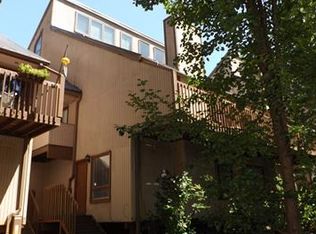10 Things to Look for in a Home Inspection
Buying a home is most likely the most substantial investment of your life, as well as, being one of the most exciting times. You could be a first-time buyer or have reached a stage in your life where you are finally able to purchase that dream home you have always wanted. However, it is important to educate yourself about the process of investing in your home because there are many things to consider before signing. A key thing to have done is a home inspection by someone who is qualified. The state of North Carolina does require home inspectors to complete classroom training, as well as other statues, but no one is perfect and can miss things. That is why we highly recommend you are present when your home inspector occurs. Therefore, today we are going to look at the 10 things you should look for in a home inspection.
Attic
If your inspector can get into the attic without harming the insulation it can tell you a lot about the health of the home. Have them check for air leaks and sagging insulation. While up there they can also do a once over for any pests. A red flag in this area would be, do the bathroom vents go all the way thru the roof? If not, then they are creating mold and mildew and are not up to code.
Appliances
If any appliances are coming with the home the first thing you should do is find out the age of them. Don’t hesitate to try them out while you are there and look for rust. Turn the range on and place a thermometer in the oven, set it to 350 degrees, then check back in 10 minutes. Also, place a cup of water in the microwave and check it after 45 seconds to see if it is heating up properly. Upon arrival to the property start a cycle with the dishwasher and by the time the inspection is done it should have completed.
Basement
The basement is another key area for inspection much like the attic. Look for mold, mildew, and areas of water or water stains. Also, check the basement windows and look for cracks in the walls or foundation. Cracks may not be a deal breaker, but it is important to find out what caused them, your inspector should be able to answer this for you.
GFCIs
On touring the home have your inspector check each outlet to see if it is working. They should have the proper tools with them to check voltage and can tell if the outlets are grounded properly and up to code. It is also important to have your inspector look over the electrical system within the home as well.
HVAC System
Have your inspector check all aspects of your heating, ventilation, and air conditioner system. While they can simply tell you if it is functioning or not at the time of inspection go a step further. Ask them to check the serial number and tell you how much longer they think the condenser (outdoor) unit will last. On average most units last 12-15 years before needing replacement. Don’t forget to find out when the last time the system was maintained.
Plumbing
Go over all the plumbing in the home and check for leaks and the age of the plumbing. If the plumbing is old, it may not be up to code. Another thing to check for is to have your inspector check that the bathtub and shower pans are draining properly. Turn on all the water faucets of the home and check for water pressure and drainage and flush all the toilets. If there is a sink that is not draining well it could be indicative of a larger issue. It may be worth it to also consider having a separate sewer inspection. These can be conducted for a reasonable fee and done via video.
Roof
Your inspector should climb on the roof, if possible, and look for any issues and take pictures to document it. Thirty-nine percent of all insurance claims in the US are pertaining to the roof. Look for curling or missing shingles, water damage, and also ask when was the last time the roof was replaced. Look at the gutter system as well to see if it is clogged or damaged. Poor gutters could be a sign of underlying issues on the roof not being well-kept.
Water Heater/Furnace
To get an idea of how well either the water heater or furnace was taken care of check the filter systems. A poor filter is a sure sign of neglect and could end up costing you a lot out of pocket, and just like the HVAC system ask when the last time maintenance was performed on them. If either is getting close to being replaced, consider that in your offer on the property.
Windows
Open every window in the home to see if any get stuck or have trouble closing.
Miscellaneous
Above are the major things that you should consider when inspecting a property but there are many more as well. For example, move rugs to look at the floor, move pictures to check for damage on the walls, search for water stains, paint peeling, cracked tiles, and other cosmetic fixes. Freshly painted walls or partial floor fixes could mean that the current homeowner cares about the home or it could be a cover-up for something else. Likewise, inspect the porches for wear and tear or decay. Always ask questions!
Buying a home is exciting but go into it educating yourself so that you know exactly what kind of property you are investing in. Understand what types of things to look for in a home inspection so you can be confident in the purchase you make for yourself and family.

